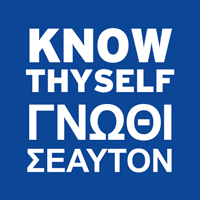Wednesday 31 July 2013
Sunday 21 July 2013
Is free will a scientific problem?
By Neil Levy, The Florey Institute of Neuroscience and Mental Health
An American neuroscientist claims to have solved the problem of free will. Peter Tse, who works at Dartmouth College in New Hampshire, says that the key to free will lies in how neurons can rewire each other. But I would argue the problem of free will is a conceptual problem, not a scientific one.In an article he recently published in New Scientist, and at much greater length in his book The Neural Basis of Free Will, Tse sets out his theory according to which neurons rewire each other. They can form temporary circuits, and alter the criteria to which they respond in the future.
Wednesday 17 April 2013
Explainer: what is geoblocking?
By Karl Schaffarczyk, University of Canberra
So you sit down in front of your computer to catch the latest episode of Doctor Who directly from BBC’s iPlayer, and you are greeted by an error message informing you that the program will play only in the UK.So why are you blocked? How does the BBC website know you are not in the UK?
Geoblocking is the system used to limit your access to the internet, based on your geographic location.
Friday 3 August 2012
Epictetus: The First Self-Help Philosopher?
A Greek philosopher of 1st and early 2nd centuries C.E., and an exponent of Stoic ethics notable for the consistency and power of his ethical thought and for effective methods of teaching. Epictetus' chief concerns are with integrity, self-management, and personal freedom, which he advocates by demanding of his students a thorough examination of two central ideas, the capacity he terms ‘volition’ (prohairesis) and the correct use of impressions (chrēsis tōn phantasiōn). Heartfelt and satirical by turns, Epictetus has had significant influence on the popular moralistic tradition, but he is more than a moraliser; his lucid resystematization and challenging application of Stoic ethics qualify him as an important philosopher in his own right.
Monday 23 July 2012
The G4S debacle in London is a wake-up call on outsourcing security
By Greg Barton, Monash University
Stuff happens. When organising something as big as the Olympic Games some things are bound to go wrong.
Sometimes the failures are simply funny. Just one day after its public unveiling in Trafalgar Square, the official 500 day Countdown Clock stopped counting down. It was a real-egg-on-face moment for LOCOG but harmless black comedy for everyone else.
Sunday 22 July 2012
Complementary vs western medicine – both have a role in universities
 |
| Universities should be protected as sites where unpopular ideas and theories can be examined. uonottingham |
By Paul Komesaroff, Monash University
Medicine has long been the subject of vigorous debate about the control of social resources. The formation of modern medicine in the mid-19th century was itself the result of a century long fight for legitimacy among many contending groups. At that time, those who won out – the physicians, the surgeons and those who prepared and sold medicines – had no more evidence to support them than those they defeated. They succeeded on the basis of politics, not of evidence.
Subscribe to:
Posts (Atom)


